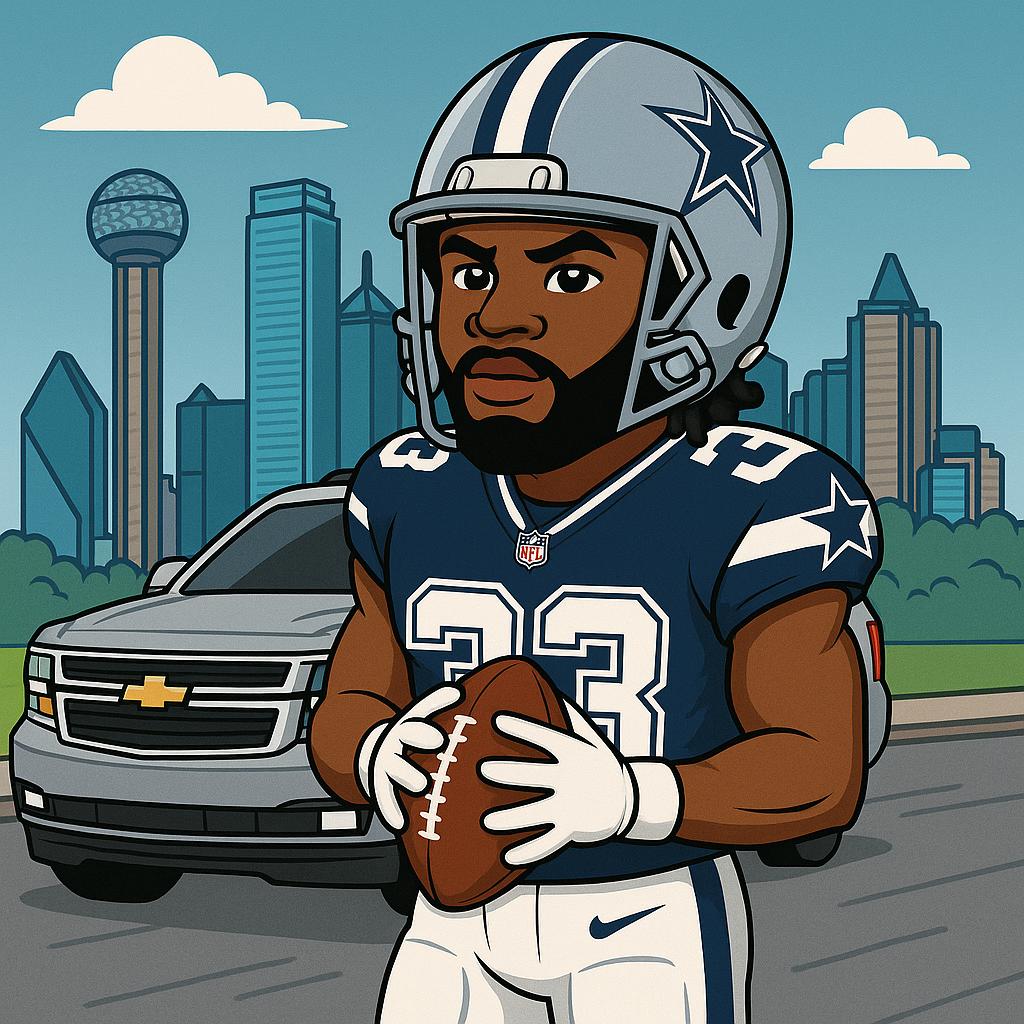
In a football world obsessed with five-star talent and viral highlights, Javonte Williams carved his path the old-fashioned way: with grit, intelligence, and bruises.
Born on April 25, 2000, in the small town of Wallace, North Carolina, Javonte’s story begins far from the glitz of college football powerhouses. In Wallace, where the air smelled of pine and the community gathered around high school football like a weekly sermon, Williams was a quiet, polite kid with a motor that never stopped running. He grew up in a home that valued faith, education, and hard work. And he absorbed all of it.
Valedictorian in the Weight Room
At Wallace-Rose Hill High School, Javonte wasn’t just the heartbeat of the football team—he was its brain. He graduated as valedictorian, balancing AP courses with brutal weight room sessions and Friday night lights. His work ethic wasn’t just rare; it was radical. Coaches said he trained like someone chasing survival. He had to.
Despite rushing for over 2,000 yards and 30 touchdowns in his senior season, college scouts didn’t knock down his door. In fact, no major programs offered him a scholarship until after he led his team to the 2017 2A state championship.
The very next day, UNC finally called. One offer. One opportunity. That’s all he needed.
Efficiency Machine at Chapel Hill
When he arrived at the University of North Carolina, Williams shared the backfield with fellow standout Michael Carter. They called themselves “The Two-Headed Monster,” and rightly so. Williams was the bruiser, the north-south punisher who seemed to grow stronger with each hit.
In his junior year, he exploded for 1,140 rushing yards and 19 touchdowns on just 157 carries, averaging 7.3 yards per carry. These weren’t empty yards. They were violent, momentum-shifting runs. He led the nation in broken tackles and yards after contact, more than doubling the second-place runner.
According to Pro Football Focus (PFF), Williams posted a 95.9 rushing grade, the highest ever given at the time. In an era where analytics ruled, Williams wasn’t just good—he was historically great.
Draft Day: The Silent Star Rises
Despite the numbers, Williams wasn’t a household name heading into the 2021 NFL Draft. He wasn’t flashy. He didn’t talk trash. He didn’t have a Heisman campaign or a primetime slot. But scouts saw the tape. Coaches saw the heart.
The Denver Broncos selected him in the second round, a steal by any metric. And it didn’t take long for Williams to prove them right. In his rookie season, he led the NFL in broken tackles per attempt, showing the same relentless physicality that defined his college days.
He also earned praise for his elite pass-blocking, protecting quarterbacks like a seasoned veteran. His understanding of defensive schemes and ability to pick up blitzes made him one of the most complete backs in his class. Williams’ football IQ is off the charts—a product of his studious habits and natural instincts. Coaches often said he processed the game like a coordinator, not a player, making him invaluable on third downs and in high-pressure situations.
He wasn’t Alvin Kamara. He wasn’t Christian McCaffrey. He was something else: a throwback runner with a modern edge.
A System That Didn’t Fit
When Sean Payton took over in Denver, he brought with him a philosophy rooted in tempo and speed—a system that thrived on fast cuts, stretch runs, and precision in space. It was an offense tailor-made for elusive backs like Alvin Kamara. But it wasn’t built for Javonte Williams.
Williams is a power back, a downhill punisher who builds momentum with every stride. In Payton’s shotgun-heavy, fast-paced approach, Williams often found himself standing still at the handoff, asked to accelerate laterally instead of downhill.
The mismatch was obvious. Williams still flashed brilliance, but he wasn’t being used like the back he was meant to be. Add in a tough injury, and suddenly one of the league’s most efficient backs became an uneasy fit in a system that didn’t value what he did best.
Welcome to Dallas
Now, in 2025, Javonte Williams joins the Dallas Cowboys. A team with tradition, physicality, and a run-first mentality with Brian Schottenheimer. A team that also plays on turf, where Williams averages 4.2 yards per carry, compared to just 3.9 on grass. In Dallas, he finally gets what he hasn’t had since UNC: a system that fits.
And Cowboys fans are about to find out what North Carolina and Denver already know.
He’s not a media darling. He’s not a fantasy football cheat code. He’s a problem for linebackers, corners, and safeties who dare stand in front of him.
The Legacy Just Beginning
Javonte Williams is proof that you don’t need 20 offers to make it. You don’t need viral clips or elite combine scores. You need heart, brains, and the willingness to run through the noise.
Now in Dallas, under the bright lights and zero expectations, Javonte isn’t running from anything.
He’s running through it all.
And when he hits the hole with momentum, all that’s left is the echo of a stone the builders refused.
